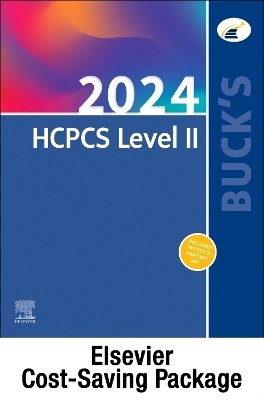
Encyclopedia of Bioinformatics and Computational Biology
Elsevier - Health Sciences Division
978-0-323-95502-7 (ISBN)
- Noch nicht erschienen (ca. März 2025)
- Versandkostenfrei innerhalb Deutschlands
- Auch auf Rechnung
- Verfügbarkeit in der Filiale vor Ort prüfen
- Artikel merken
Shoba Ranganathan is an Honorary Professor of Bioinformatics in Applied Biosciences, Macquarie University. She was the first Chair of Bioinformatics in Australia (2004-22). She has held research and academic positions in India, USA, Singapore and Australia as well as a consultancy in industry. Shoba's research addresses several key areas of bioinformatics to understand biological systems using computational approaches. Her group has achieved both experience and expertise in different aspects of computational biology, ranging from metabolites and small molecules to biochemical networks, pathway analysis and computational systems biology. She has authored as well as edited several books and contributed several articles to the 1st edition of this Encyclopedia. She was awarded the 2023 Outstanding Contributions to the International Society for Computational Biology (ISCB) Award. She is an Honorary Senior Fellow of the Australian Society for Bioinformatics and Computational Biology since 2018 and an ISCB Fellow since 2023. Mario Cannataro is a Full Professor of Computer Engineering and Bioinformatics at University “Magna Graecia of Catanzaro, Italy. He is the director of the Data Analytics research center and the chair of the Bioinformatics Laboratory. His current research interests include bioinformatics, medical informatics, artificial intelligence, sentiment analysis, data analytics, parallel and distributed computing. He is a member of the editorial boards of Briefings in Bioinformatics and IEEE/ACM Transactions on Computational Biology and Bioinformatics. He was guest editor of several special issues on bioinformatics and health informatics and organized several bioinformatics workshops in conjunction with ACM-BCB and IEEE-BIBM conferences. He has published three books and more than 300 papers in international journals and conference proceedings. Prof. Cannataro is a member of the Ethical Committee of the Calabria Region and a senior member of ACM, IEEE and SIBIM, He is currently a member of the steering committee of the Italian Bioinformatics Society (BITS) and of the Italian Association for Telemedicine and Medical Informatics (AITIM). Mohammad Asif Khan is a Professor and Associate Dean at the University of Doha for Science and Technology, Qatar. He earned his PhD from the National University of Singapore before joining Johns Hopkins University (JHU), USA, as a faculty member. He later became part of a pioneering JHU team to establish a collaboration with Perdana University (PU) in Malaysia, where he served as the Founding Dean of the School of Data Sciences and Founding Director of the Centre for Bioinformatics. Dr. Khan was also a visiting Professor at Bezmialem Vakif University, Istanbul, through Turkey’s “International Fellowship for Outstanding Researchers. He is currently the President of the Asia-Pacific Bioinformatics Network and chairs the executive board of the Global Organisation for Bioinformatics Learning, Education, and Training. His research focuses on biological data warehousing and bioinformatics applications in virus study, immune responses, vaccines, drug design, and disease biomarkers.
I. Methods
Algorithms
Biological data models
Computational models and languages for bioinformatics
Artificial Intelligence and Machine Learning
Deep Learning
Data Mining
Biological Networks
Biostatistics
Integrative Bioinformatics
Ontology
Pathways
Text Mining
Natural Language Processing
Epidemiology and Pandemic surveillance
Bioimage Analytics
II. Topics
Cheminformatics
Disease Informatics
Environmental (Biome) Informatics
Functional Genomics
Genome Informatics
Immunoinformatics and Vaccinology
Molecular Phylogeny
Proteome Informatics
Structural Bioinformatics
Systems and Synthetic Biology
Translational Bioinformatics
Bioimage Informatics
Interactomics
Epidemiology
III. Applications
Biome mapping and ecological modelling
Database Searching
Drug Design
Sequence Analysis
Structure Analysis
Genome Analysis
Genome-Wise Association Studies (GWAS)
Epigenomic Analysis
Transcriptome Analysis
Proteome Analysis
Interactome Analysis
Phylogenetic Analysis
Vaccine Design
Epitope Analysis
Bioinformatics pipelines and workflows
Metabolomics analysis
Biomolecular engineering
Biomarker discovery
Network analysis
| Erscheint lt. Verlag | 22.3.2025 |
|---|---|
| Mitarbeit |
Chef-Herausgeber: Shoba Ranganathan, Mario Cannataro, Mohammad Asif Khan |
| Verlagsort | Philadelphia |
| Sprache | englisch |
| Maße | 216 x 276 mm |
| Gewicht | 450 g |
| Themenwelt | Informatik ► Weitere Themen ► Bioinformatik |
| ISBN-10 | 0-323-95502-9 / 0323955029 |
| ISBN-13 | 978-0-323-95502-7 / 9780323955027 |
| Zustand | Neuware |
| Haben Sie eine Frage zum Produkt? |
aus dem Bereich

